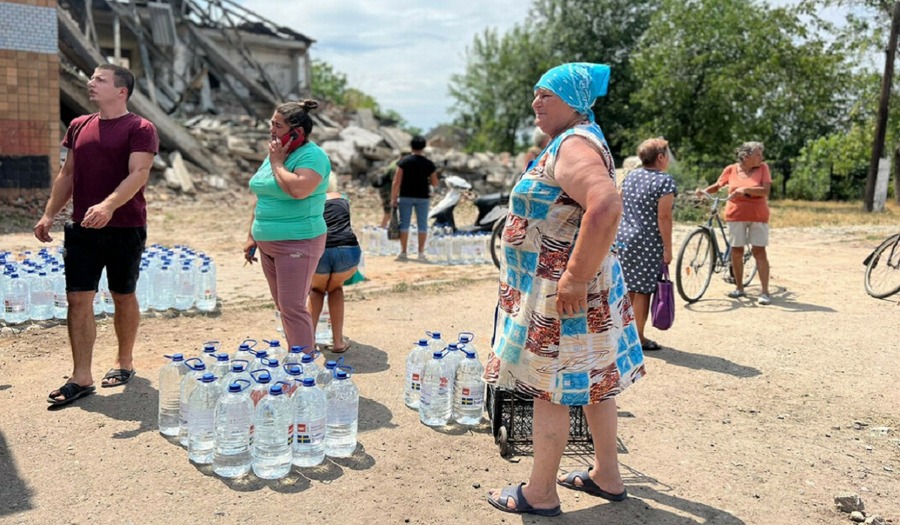One hundred days have passed since the catastrophic Kakhovka dam explosion in Eastern and Southern Ukraine. Yet, nearly 700,000 affected individuals remain in turmoil, grappling with a dire humanitarian crisis. The aftermath of the disaster has left communities struggling with water shortages, unsafe drinking water, housing crises, and a looming fear of impending blackouts as winter approaches.
Cristina Falconi, Area Manager for the Norwegian Refugee Council (NRC) in Ukraine, emphasized the ongoing challenges faced by the survivors: “100 days since the disaster, people are struggling with water shortages, they have unsafe drinking water and desperately need their damaged homes repaired. Many are also worried about a return to the dark days of blackouts and no heat this winter following the energy infrastructure attacks that were so prevalent last year.”
The Kakhovka dam breach occurred in the early hours of June 6th, resulting in extensive flooding, water shortages, drought, and severe environmental damage across regions near the Dnipro River, including Dnipropetrovsk, Kherson, and Zaporizhzhia.
In collaboration with civil society groups and national and international humanitarian organizations, the Ukrainian government is actively working to establish long-term solutions for water pipelines and home repairs. While there have been some initial strides, rehabilitating pipelines remains complex, especially in areas near active hostilities. Consequently, village residents could face a harsh winter without access to water and heating.

For some families, the fear of displacement looms large. Many will choose to abandon their damaged homes during the winter months, but for many elderly residents like Lyudmila, 59, from Nikopol, leaving is not an option: “I stayed here when the war began. I stayed here when the Zaporizhzhia nuclear power plant was seized. I will not leave, not even now.”
Cristina Falconi underlined the urgency of the situation: “We must ensure that vulnerable populations are not left living in freezing cold, damp-ridden homes and that they do not fall unnecessarily into ill-health. We need continued coordinated efforts to ensure the basic needs of affected communities are met this winter and that they are not forgotten.”
The Norwegian Refugee Council (NRC) calls upon all parties involved in the conflict to prioritize the protection of vulnerable civilians and civilian infrastructure throughout this ongoing crisis.
In this grim context, as we mark the 100th day since the Kakhovka dam disaster on September 14th, the plight of those affected remains a stark reminder of their ongoing challenges. According to the United Nations, 700,000 people were severely impacted by the disaster, facing severe water shortages, while up to 3,000 individuals were forcibly displaced as of June 2023. These families have experienced the trauma of losing their homes and the harsh reality of being cut off from their water supply.
In response to the immediate needs of affected communities, the NRC launched an emergency relief effort, distributing 120 tonnes of bottled drinking water to 24,000 individuals across various communities. Additionally, the NRC supported its partner, Caritas Kryvyi Ryg, in delivering 400 construction kits in Kherson and providing 25.4 tonnes of bottled drinking water in Dnipropetrovsk and Kherson regions.
In Southern Ukraine, NRC’s office distributed 90 tonnes of bottled drinking water to 9,045 people in the Snihurivka hromada, Mykolaiv oblast, which lost access to water due to the explosion. The NRC’s efforts have provided essential relief to those grappling with the aftermath of this devastating disaster.









